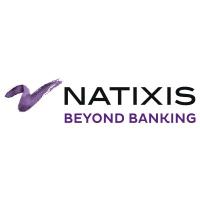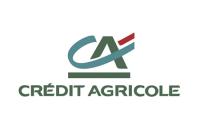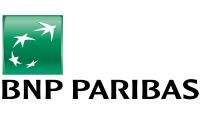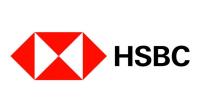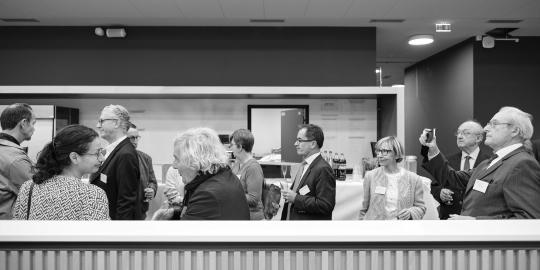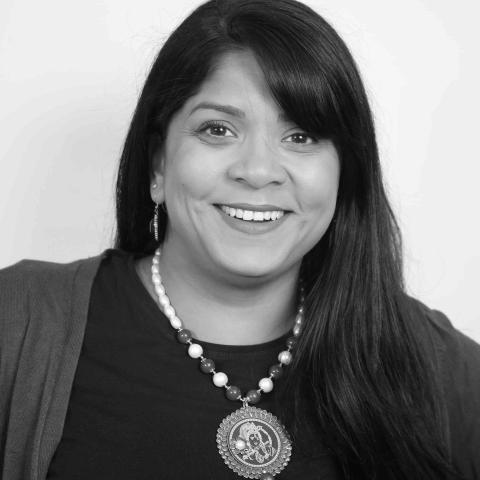
Bachelor Finance 2nd year
- Full-time or work-study optional starting on B3
- 8500€
- September 2025
- French / English (4th Semester)
About the Bachelor
Our Bachelor 2 in Finance is a 24 months program that offers an innovative and progressive pathway aimed at acquiring the fundamentals of business management. The programme also provides access to a third-year specialisation in market finance or corporate finance.
Within a company, students will be able to work seamlessly with cross-functional departments: marketing, human resources, purchasing, finance, accounting, international, communications, etc.
What sets our Bachelor in Finance apart?
- Its specialisation programme in corporate finance or market finance.
- A skills-based teaching approach based on the Eslsca Learning System (ELS)
- A positive teaching approach
- Its international dimension
- Its entrepreneurial dimension thanks to the entrepreneurial pathway developed over the first two years:
- Step 1 in Bachelor 1- First laboratory (from idea to project)
- Step 2 in Bachelor 2 - Second laboratory (from project to company)
Why do a Bachelor's degree in Finance?
The Bachelor in Finance aims to train and support future finance managers.
The individualisation of the course (choice of specialisation in the third year, projects, etc.), the emphasis on professionalisation and personal development are key elements of its pedagogical engineering. The programme is open to all young people with an interest in finance.
The advantages of the Bachelor of Finance
Advanced finance is at the heart of corporate strategy. This means that when you enrol on the Bachelor Finance programme, you will acquire solid skills and unrivalled knowledge in terms of:
- Financial planning ;
- Cash management ;
- Capital budgeting;
- Business environment, management, marketing and corporate culture;
- Human resources (HR);
- Financial markets, banking ;
- Corporate, financial and business law
- General and analytical accounting.
You will also learn how to use mathematical, financial and statistical tools.
The teaching of technical subjects such as coding (Python and VBA), as well as the contextualisation of students' future professional activity through the use of a trading room (Bloomberg), play an important role in the Bachelor's curriculum.
ESLSCA's Bachelor in Finance
This course makes candidates operational as soon as they graduate, because in addition to their enriched network, they have the right skills to help a company perform. The involvement of industry professionals and the quality of ESLSCA's teaching staff add further value. The skills delivered by this bachelor's degree are recognised and acclaimed by professionals.
Objectives

The Bachelor of Finance aims to :
- Understand the managerial and economic environment of the company
- Deepen your knowledge of finance while exploring international issues and innovation
- Specialise in corporate or market finance and apply your knowledge to real-life problems
Bachelor Finance 2024/2025 programme
Teaching methods :
Face-to-face: 95% | Online: 5%
Lectures: 65% | Tutorials: 35%
MODULE 1: BUSINESS ENVIRONMENT
- Economy*
- Human Resources*
- Organisational theory*
- Business strategy*
- Marketing fundamentals*
- Economic and financial culture*
- Introduction to Business Law*
MODULE 2: ACCOUNTING AND LAW
- General accounting*
- Analytical accounting*
MODULE 3: QUANTITATIVE METHODS
- Mathematics*
- Statistics*
MODULE 4: LANGUAGE/COMPUTING
- Business english
- Business English/TOEFL ITP preparation (included in tuition fees)
- How to write a CV and covering letter
MODULE 5: DEVELOPING PROFESSIONAL SKILLS
- Sharing week* (soft skills, curiosity-general culture, agile sprint, etc.)
- Entrepreneurial laboratory* "from idea to project" - Step 1
- Circular economy*
- Social responsibility/CSR*
- Climate fresco*
INTERNSHIP - 1 month (22 days in a company)
*course in French
MODULE 1: BUSINESS MANAGEMENT
- Economy
- International Political Economy
- Project management
- Financial law
- Corporate social responsibility
MODULE 2: FINANCE AND FINANCIAL MANAGEMENT
- Banking and financial intermediation
- Fundamentals of financial markets
- Financial accounting
- Management control*
- Corporate taxation*
- Company accounting*
- Forecasting and financial management*
MODULE 3: QUANTITATIVE METHODS
- Mathematics*
- Statistics*
- Research methodology:
- 1st semester : Part 1: Introduction to academic research*
- 2nd semester: Part 2: Introduction to academic research
MODULE 4: LANGUAGES
- English (business english, public speaking)
- French language* - for international students only
- Mandarin
MODULE 5: DEVELOPING PROFESSIONAL SKILLS
- Entrepreneurial laboratory* "from project to company"* - Step 2
- Social economy*
- Study trips*
- International exchange (semester 2)
INTERNSHIP - 2 months (44 days in a company)
*Course in French
COMMON CORE
MODULE 1: COMPANY MANAGEMENT
- Company law*
- Team management*
- Challenge Open innovation
MODULE 2: FINANCE
- Cash management*
- Portfolio management*
- Compliance*
- International Finance*
MODULE 3: QUANTITATIVE METHODS
- Enhanced statistics*
- Research methodology - Dissertation*
MODULE 4: LANGUAGES/IT
- Financial english
- Public speaking / Mandarin
- Management information systems (ERP-CRM-BDD)*
- Introduction to VBA coding, Python beginner*
SPECIALISATIONS
MODULE 5: SPECIALISATION IN CORPORATE FINANCE
- Management control - level 2*
- In-depth accounting*
- Financial analysis*
- Financial decision-making*
- Introduction to auditing*
MODULE 5: MARKET FINANCE SPECIALISATION
- Financial management*
- Financial markets and institutions*
- Behavioural finance*
- Company valuation*
- Bloomberg workshop/Technical analysis*
- Financial mathematics*
MODULE 6: RESEARCH METHODOLOGY AND RESEARCH DISSERTATION
- Research methodology*
- Assignments*
- Oral presentation*
INTERNSHIP - 4 months (i.e. 88 days in companies) for initial training students
*course in French
Target Skills
- Block n°1: Budgetary control
- Block n°2: Managing a team and a department
- Block n°3: Managing business management projects
- Block n°4: Conducting an audit and financial management
- Block n°5: Optional: Managing a purchasing and logistics department
- Block n°6: Optional: Managing a financial department

Sharing Weeks and Entrepreneurial Project
Sharing weeks in the 1st year of the Bachelor programme.
After 2 difficult years in which interpersonal links and links with educational institutions were weakened, the start of the new academic year at ESLSCA had to be both unifying and likely to galvanise the energies of all those involved in the school (students, teachers, administrative staff), in order to generate a strong and lasting commitment. With this in mind, ESLSCA's academic management felt it was necessary to offer exciting activities that would prepare students for the coming years in a fun and dynamic way.
What do these two weeks of sharing involve?
The idea is to offer 1st year Bachelor students two weeks to recharge their batteries, learn and assert themselves after a rather difficult period linked to the health crisis, so that they can begin their higher education course with motivation and serenity.
The aims of these two weeks are to
- Prepare students to make the leap into higher education
- Appreciate the innovative and fulfilling dimension of the Bachelor's programme: inspire, motivate, remove obstacles, build confidence, stimulate, etc.
- Develop group cohesion and team spirit (presentation of an unusual building, a work of art)
- Reveal talents and prepare for school life (assertiveness, associations, school life, etc.)
- Start learning soft skills in a fun and innovative way (personal development, self-confidence, eloquence, etc.)
- Develop curiosity and creativity
- Develop collective intelligence and prepare for the entrepreneurial curriculum (Start-up Game, Teambuilding, Agile Sprint, etc.)
Entrepreneurial project: 1st and 2nd year of the Bachelor's programme.
This involves setting up two entrepreneurship training programmes. The first, an introduction, for first-year Bachelors. The second, a more in-depth programme, for second-year Bachelors. Projects in the first years will have to fit in with the logic of the circular economy. Second-year projects must propose a solution with an economic and social impact.
Step 1 - Entrepreneurial Laboratory: from idea to project.
For Bachelors 1, we offer a programme spread over one semester and divided into 3 types of activity: a 3-day launch Hackathon, 3 progress sprints and 1 closing sprint. The students, organised in project teams, will be brought face to face with the major challenges of entrepreneurship, from creative design to the production of a mock-up corresponding to a product whose economic potential will be identified and presented in front of a jury.
Step 2 - Laboratoire entrepreneurial: from project to company.
For Bachelors 2, we offer a programme with a structure equivalent to step 1 (hackathon, sprints, closing). Organised in project teams, the students will be presented with theoretical content that complements the step 1 programme, and corresponds to a higher level of entrepreneurial maturity. In this way, 1st year Bachelor students will have the opportunity to set up a project, while 2nd year students will have the opportunity to set up a company, with its associated business model.
Creating the climate mural
The climate mural helps students to understand how climate change works, and the scale and complexity of the issues involved.
Enrolment is open all year round and closes once the number of students has been reached (places are limited per class).
To apply, candidates must have obtained or be in the process of validating their first year in higher education. They must also have a career plan that matches the programme.
Application deadline: 4 September 2023. After these dates, please contact the Admissions Department directly.
1. Application form
Candidates must submit an application including
- School reports for the last two years
- Baccalaureate transcripts
- Motivation questionnaire
- Letters of recommendation (minimum two)
2. Tests
- Candidates are given a reasoning test covering verbal, numerical and logical skills.
3. Admission interview
- An interview with a member of the academic management and an admissions officer
4. Admissions panel
- Evaluation grid made up of 6 criteria - overall average of results obtained for all weighted criteria.
Career perspectives
After completing the Bachelor in Finance, students can integrate a specialized MBA of their choice:
- MBA Finance
- MBA Finance and Data Performance
- MBA Trading and Market Finance
- MBA Wealth Management
- MBA Logistics and Supply Chain Management
Students can also directly enter the business world and thus work in the following fields of activity and professions:
- Financial analyst, Treasurer, Management controller, Administrative and financial manager, Purchasing manager
- Accountant, chief accountant, payroll manager, chartered accountant, associate of an accounting firm
- Account manager, Bank account manager, Commercial , Commercial engineer
- Insurance and savings advisor, Broker, Wealth and real estate advisor, Specialist in banking and insurance products and investments

